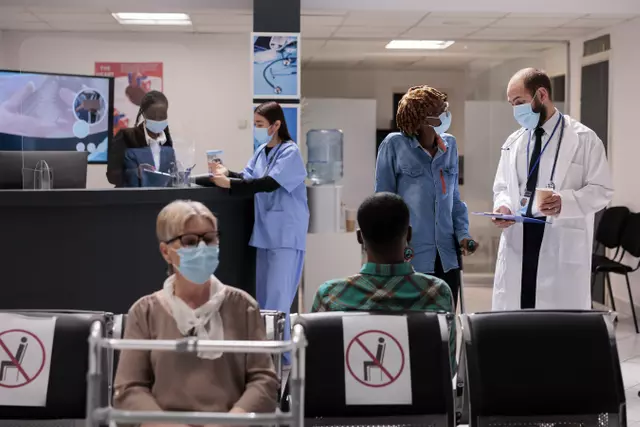Healthcare workers are no strangers to stress. Every day, they balance life-and-death decisions with long hours and moments of high emotion. However, one issue often neglected in discussions about the challenges of healthcare is violence.
Healthcare professionals routinely endure frightening levels of hostility from both patients and families — the very people they are working tirelessly to help. Now, artificial intelligence is stepping in to offer these community heroes much-needed support.
Healthcare facility management faces mounting workplace violence
Every day, nurses, doctors and security staff find themselves vulnerable to assaults and aggression, with statistics revealing that healthcare workers are five times more likely to be victims of aggravated assaults than employees in other industries. Incredibly, two nurses are assaulted every hour in America, a total of 57 each day.
A 2023 survey finds that 40% of healthcare workers experienced workplace violence in the past two years. Even more alarming, over half of the respondents reported that such incidents have been on the rise. Among those most affected are bedside nurses.
This escalating violence creates a crisis for the entire healthcare industry. How do we protect the very people whose mission is to save and heal others?
The answer lies in continuous surveillance from artificial intelligence. While much of the buzz around AI in healthcare revolves around medical diagnoses or administrative efficiency, its role in hospital security is transforming how the industry safeguards both patients and staff.
AI as a force multiplier for hospital security
In many cases, AI-powered security systems can predict violence before it ever happens. For example, predictive analytics can examine a patient’s history of aggression and detect concerning behavioral changes that increase the likelihood of violence. In these cases, the system can alert staff to intervene early with de-escalation tactics or appropriate precautions that help healthcare workers avoid dangerous confrontations altogether.
AI also steps up a hospital’s surveillance. Though almost all hospitals already employ security cameras, it is virtually impossible for human security teams to constantly monitor every corner of such a large facility. In most cases, the footage these cameras record is used solely to evaluate an incident after it has occurred.
The hospital’s cameras and environmental sensors become like eyes and ears, allowing the facility to see, hear, and feel everything that occurs in real time. AI analyzes all of this data, and like the facility’s nervous system, it detects threats and reacts instantly. Seconds make the difference between a contained situation and a catastrophe, and real-time monitoring enables hospital security staff to respond faster.
AI-based video analytics can detect suspicious movements or postures, such as clenched fists or aggressive stances, and immediately alert security personnel to intervene before situations escalate into violence. Cameras augmented with AI can also identify weapons, trespassers, or unauthorized access to restricted areas.
The instant audio sensors pick up a hostile tone, they trigger alarms or activate cameras to record. Additionally, if medical staff find themselves in a dangerous situation, they can receive instant help by saying a predefined word or phrase. AI will immediately notify security personnel and record footage.
Finally, AI builds smarter systems through data collection and analysis. By monitoring events in real time, hospitals gain invaluable insights into peak times for violence or troubling behavior patterns, allowing leadership to adjust staffing, security protocols, and training programs accordingly. AI helps hospitals find solutions faster and more effectively, improving safety for everyone.
By taking on the burden of constant surveillance and analysis, AI allows healthcare workers to shift their focus back to what matters most: their patients. With AI systems acting as a safety net, these frontline heroes can feel more at ease.
Protecting healthcare workers goes beyond mere workplace safety. It is about reinforcing a foundation of trust and respect within the system. No one can provide optimal care if they are working in fear. When medical staff feel secure, it has a profound, positive ripple effect: stronger job satisfaction, reduced burnout, better patient outcomes, and ultimately, more resilient healthcare systems.





2 Comments
important article. next, would like to see who is using AI for this and how.
Thanks Judy! Always a pleasure hearing from you. Hope all is well!